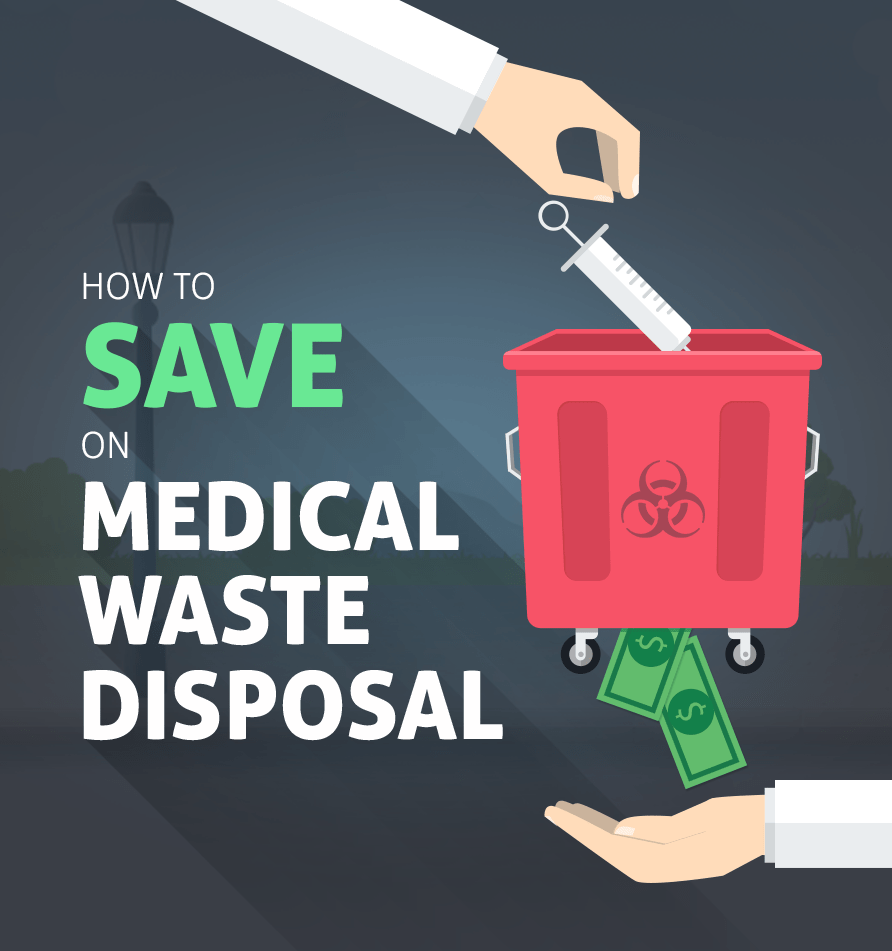Trusted Medical Waste Disposal Services: Securing Your Practice
Trusted Medical Waste Disposal Services: Securing Your Practice
Blog Article
Navigating Medical Garbage Disposal: Important Solutions for Medical Care Facilities
Healthcare centers, whether little facilities or huge healthcare facilities, are handed over with the responsibility of handling, treating, and disposing of a vast array of clinical waste streams. Recognizing the necessary solutions that sustain medical waste disposal is not simply an issue of compliance but additionally an essential component in securing public health and wellness and ecological well-being.
Regulatory Compliance Assistance
For medical care centers, guaranteeing regulatory conformity assistance is important to maintain proper handling and disposal of clinical waste. By partnering with regulative conformity professionals, healthcare facilities can stay current on advancing regulations, minimize threats linked with improper waste disposal, and inevitably contribute to a more secure and more sustainable setting for all.
Waste Segregation Guidance

Healthcare facilities should supply clear standards and training to team on how to set apart waste effectively. This includes dividing basic waste from harmful materials such as sharps, infectious waste, drugs, and chemical waste.
Collection and Transport Providers

Appropriate collection and transport solutions are vital parts of the medical waste disposal process in medical care facilities. These solutions make sure that hazardous products are dealt with safely and in conformity with regulations to shield both the environment and public wellness. Health care centers rely on specialized waste management companies to supply efficient collection and transport solutions customized to their needs.
Clinical waste collection entails segregating various types of waste at the factor of generation, making use of color-coded bags or containers to differentiate between general, hazardous, pharmaceutical, and other waste streams. Once collected, the waste is delivered in committed cars outfitted to handle harmful materials securely.
Therapy and Disposal Solutions
In the realm of clinical waste disposal for health care centers, after the critical stage of collection and transport solutions, the focus changes towards applying efficient therapy and disposal services. Treatment services often entail procedures such as autoclaving, which utilizes vapor under stress to sanitize the waste. This technique is generally utilized for transmittable waste that should be rendered non-hazardous before disposal. An additional prevalent treatment approach is incineration, where waste goes through heats in regulated settings to decrease its quantity and remove pathogens.
Disposal options incorporate the final action in moved here the medical waste management process. Facilities may choose landfill disposal, where dealt with waste is carefully deposited in marked areas. Medical Waste Disposal Services. Conversely, medical care facilities can select to make use of waste-to-energy facilities, which blaze waste to create electrical energy. Recycling and resource healing are also getting traction as sustainable disposal alternatives for sure kinds of clinical waste products.
Effective therapy and disposal services are critical in making sure compliance with policies and securing public health and the atmosphere. Medical care centers need to very carefully assess and select proper approaches that line up with their waste management goals and sustainability campaigns.
Staff Training and Education

To efficiently manage clinical waste disposal in medical care facilities, extensive staff training and education play an important duty in making certain adherence to governing demands and preserving a risk-free atmosphere. Proper training equips personnel with the expertise and skills needed to deal with different kinds of clinical waste, segregate them correctly, and package them securely for disposal. By informing workers on the risks related to inappropriate handling of clinical waste, centers can reduce the chance of crashes, contamination, and regulative offenses.

Final Thought
In final thought, healthcare centers rely upon necessary medical garbage disposal solutions to guarantee governing compliance, proper waste segregation, secure collection and transportation, efficient treatment and disposal, along with team training and education. These solutions play a crucial function in maintaining the wellness and security of both healthcare employees and the public, highlighting the relevance of proper administration of clinical waste in health care settings.
For health care facilities, making sure governing compliance assistance is essential to preserve appropriate handling and disposal of clinical waste. Waste segregation involves classifying different kinds of clinical waste to guarantee proper handling, treatment, and disposal. This consists of separating basic waste from hazardous materials such as sharps, infectious waste, pharmaceuticals, and chemical waste.Clinical waste collection includes setting apart different kinds of waste at the point of generation, making use of color-coded bins or bags to differentiate between basic, harmful, pharmaceutical, and other waste visit site streams.In the realm of clinical waste disposal for healthcare centers, after the important stage of collection and transport solutions, the emphasis shifts in the direction of implementing reliable therapy and disposal remedies.
Report this page